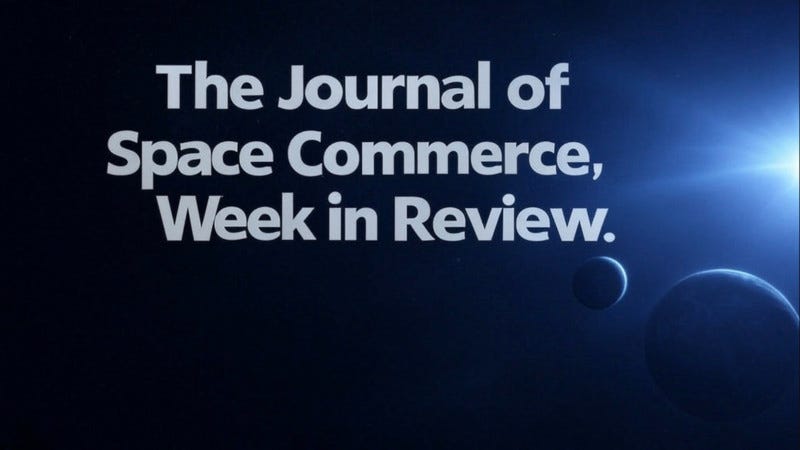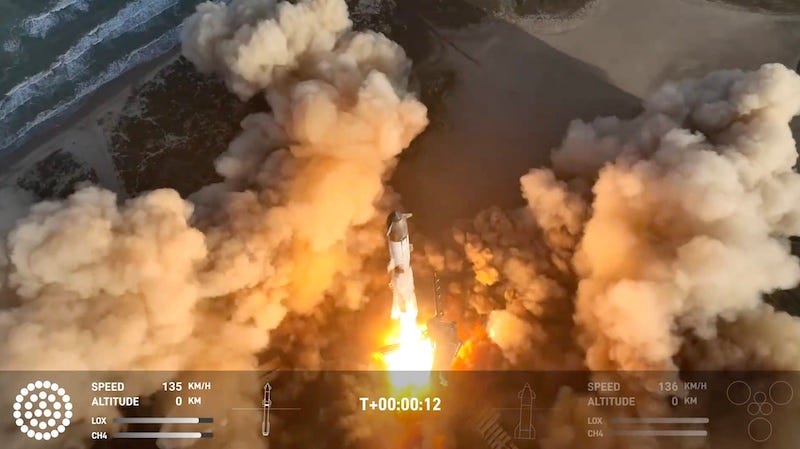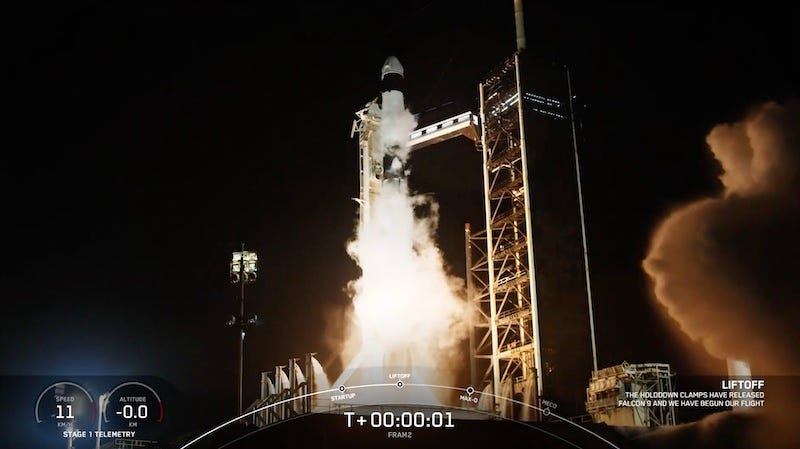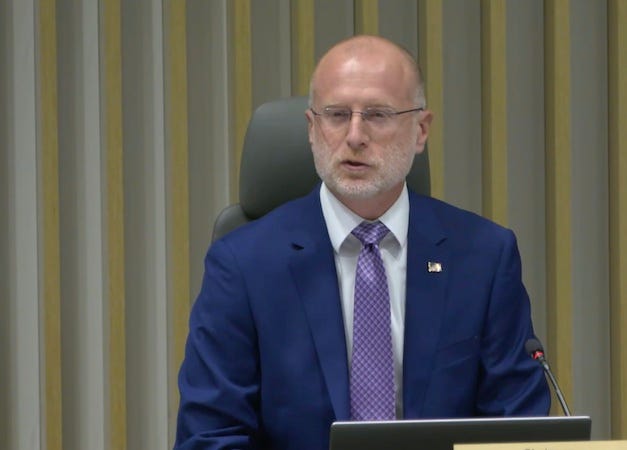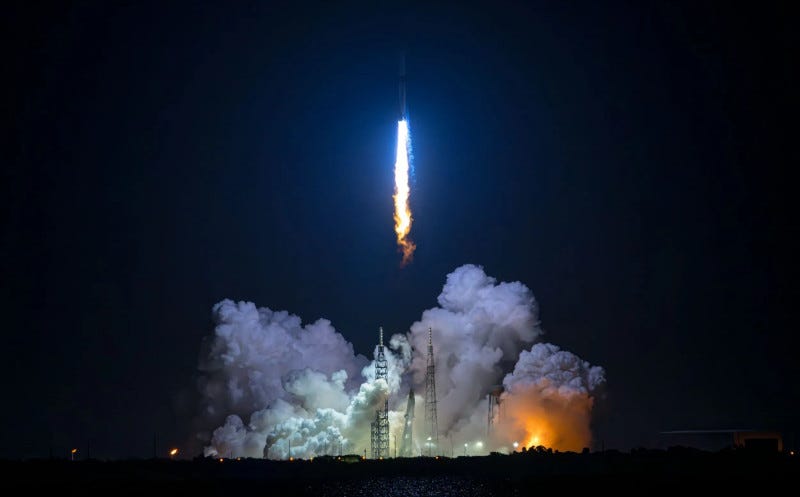The impact of space commerce on the U.S. economy, and another all-civilian space flight. I'm Tom Patton, and here are some of the top stories from The Journal of Space Commerce this week.
The U.S. Bureau of Economic Analysis (BEA) has released new and updated U.S. space economy statistics for 2012–2023. These statistics provide estimates of the U.S. space economy's gross domestic product (GDP) and gross output by industry in current and chained (or “real”) dollars, as well as by-industry estimates of private employment and compensation. The space economy accounted for $142.5 billion, or 0.5 percent, of total U.S. GDP in 2023.
Real GDP grew by 0.6 percent in the space economy, reflecting the second consecutive year of positive real growth. The statistics also show the space economy accounted for $240.9 billion of gross output in 2023 and $57.9 billion of private-sector compensation and supported 373,000 private-sector jobs.
Real GDP growth in the space economy was partly offset by declines in the information sector, down −4.0 percent, and wholesale trade, which was off 5.2 percent.
According to BEA, gross output is principally a measure of sales or revenue from production for most industries, although it is measured as sales or revenue less cost of goods sold for margin industries like retail and wholesale trade. Intermediate inputs are the foreign and domestically-produced goods and services used up by an industry in the process of producing its gross output. Value added is the difference between gross output and intermediate inputs and represents the value of labor and capital used in producing gross output. The sum of value added across all industries is equal to gross domestic product for the economy. Value added is also measured as the sum of an industry’s compensation of employees, taxes on production and imports, less subsidies, and gross operating surplus.
Or put more simply:
In business: Sales = Cost-of-Goods + Value Add
In the economy: Gross Output = Intermediate Inputs + GDP
Sales is to Gross Output as Value Add is to GDP
We're working on getting a representative from BEA to be a guest on The Ex Terra Podcast in the coming weeks, so be sure to stay tuned, or better yet, subscribe.
-0-
NASA has awarded SpaceX a modification under the NASA Launch Services (NLS) II contract to add Starship to their existing Falcon 9 and Falcon Heavy launch service offerings.
The contracts include an on-ramp provision that provides an opportunity annually for new launch service providers to add their launch service on an NLS II contract and compete for future missions and allows existing contractors to introduce launch services not currently on their NLS II contracts.
Meanwhile, another group of civilian astronauts lifted off on the Fram2 mission aboard a SpaceX Dragon capsule.
Fram2 is the first manned mission to be launched into a polar orbit. During their multi-day mission, Dragon and the crew will explore Earth from a polar orbit and fly over Earth’s polar regions for the first time. They will also conduct 22 research experiments designed to help advance humanity’s capabilities for long-duration space exploration, and the understanding of human health in space.
Named in honor of the ship that helped explorers first reach Earth’s Arctic and Antarctic regions, Fram2 is commanded by Chun Wang, an entrepreneur and adventurer from Malta.
The Fram2 Dragon capsule splashed down off the coast of California at about noon eastern time on Friday and the crew exited exit the spacecraft without additional medical and operational assistance, helping researchers understand the ability of astronauts to perform unassisted functional tasks after short- and long-duration space missions.
-0-
The FCC has launched an inquiry to explore commercial technologies that would complement the Global Positioning System (GPS).
Because the American economy and national security depend on GPS as the sole source of PNT data, the U.S. government has shown great interest in developing resilient backups that would protect critical operations from any disruption in GPS signals.
In his opening remarks on the topic at a commission meeting held to discuss this and other issues, FCC Chairman Brenden Carr talked about the scope of the GPS inquiry.
"With this inquiry, we will explore other PNT systems that can be complements or alternatives to GPS, with an emphasis on complementary systems," Carr said. "Beyond answering technical questions, we hope this effort will engage stakeholders across government and industry to encourage the development of new PNT technologies and solutions."
The Commission intends to build a comprehensive record on what actions it can take to strengthen GPS and promote other PNT technologies. These actions could include FCC rule changes, public-private partnerships, testbeds, Innovation Zones, and more.
-0-
The FAA-required investigation of the Blue Origin New Glenn-1 mishap that occurred on Jan. 16 is closed. There were no public injuries or public property damage.
The FAA oversaw and accepted the findings of the Blue Origin-led investigation. The final mishap report identified the proximate cause of the mishap as an inability of New Glenn's first stage to restart the engines, preventing a reentry burn from occurring, and resulting in the loss of the stage.
Blue Origin identified seven corrective actions to prevent reoccurrence of the anomaly. The FAA will verify that Blue Origin has implemented corrective actions prior to the launch of the New Glenn-2 mission.
But with the conclusion of the investigation, the Blue Origin New Glenn vehicle is authorized to return to flight provided all other licensing requirements are met.
-0-
The first commercial space launch from European soil was conducted Sunday by satellite launch service company Isar Aerospace.
And though the flight of the Spectrum rocket was terminated 30 seconds after being launched from Andøya (AN-dwah) Spaceport in Norway, Daniel Metzler, CEO and Co-founder of Isar Aerospace, said the launch met all of the company's goals.
"We got a clean liftoff, we flew for about 30 seconds, and in the meantime we did not blow up the pad, which was most of what we wanted to achieve," Metzler said. "And what we really wanted to achieve was to get a lot of data, and so the teams are already on it right now to look at all of the data so we can learn from it, put it into the second vehicle and go from there."
Launch vehicles for the second and third flight of Isar Aerospace’s Spectrum are already in production. In its new headquarter near Munich, Germany, Isar Aerospace says it will be able to produce up to 40 Spectrum launch vehicles per year in the future.
-0-
This week on the Ex Terra Podcast, I talked with Victoria Da Poian, Lead Data Scientist, and Peter O'Donoghue, Chief Technology Officer at Tyto Athene.
The company focuses on secure communications, mission-critical IT infrastructure, and digital transformation for government agencies and defense organizations.
While their core business is not explicitly focused on the space sector, their capabilities in secure communications, cybersecurity, and IT solutions are increasingly relevant to modern space operations, particularly in defense-related satellite communications (SATCOM), ground station infrastructure, and space-based networking. O'Donoghue said these days, everything is interconnected.
"AI/ML is extremely important, but I think ... everything is going to keep evolving. But the pattern that I see that is most important is ... everything is a set of either always connected or ephemerally connected things that actually produce or create data. We need to be able to understand that data and exploit it to actually generate better mission outcomes."
Peter O'Donoghue is Chief Technology Officer at Tyto Athene.
-0-
And those are some of the top stories we covered for you on The Journal of Space Commerce this week. You can get daily updates on space commerce by subscribing to The Journal of Space Commerce on Substack at www.exterrajsc.com. And please consider becoming a paid subscriber. Whether you’re a space professional or enthusiast, paid subscribers have first access to premium articles and podcasts focused on the new space economy. Just visit www.exterrajsc.com and help keep The Journal of Space Commerce independent as we chronicle, cajole and, when necessary, critique the commercial space industry.
I'm Tom Patton
-0-




